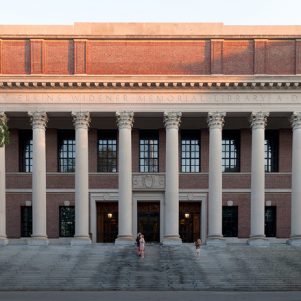GMU Senate has ‘deep concern’ over naming of law school after Scalia
By CNS News | May 3, 2016, 6:26 EDT
 (AP photo)
(AP photo) (CNSNews.com) — George Mason University’s (GMU) Faculty Senate passed a resolution last week expressing its “deep concern” with naming the university’s law school after the late U.S. Supreme Court Justice Antonin Scalia.
The resolution, which passed April 27th on a 21-to-13 vote, claimed that renaming the public university’s law school after Scalia would reinforce “the external branding of the university as a conservative institution rather than an unaligned body that is a comfortable home for individuals with a variety of viewpoints.”
It objected to “the celebration of a Supreme Court justice who made numerous public offensive comments about various groups – including people of color, women, and LGBTQ individuals – which this university has appropriately gone to some lengths to embrace.”
The resolution also criticized the “memorializing of a Supreme Court justice who was a significant contributor to the polarized climate in this country that runs counter to the values of a university that celebrates civil discourse.”
The resolution did not recommend returning the largest combined gift in GMU’s history to honor Scalia: a $10 million gift from the Charles Koch Foundation and another $20 million from an anonymous donor to provide merit-based scholarships and hire 12 new faculty members to “promote academic freedom”.
But faculty members urged GMU to “emphasize the university’s continuing support for groups that were slighted by Justice Scalia and that may have been offended by the university’s embrace of his legacy.”
Faculty and staff members at GMU, which is a public university located in Northern Virginia, also signed an April 7 petition in which they denounced the law school renaming, which they said “undermines our mission as a public university and tarnishes our reputation.
“We also recognize it as an affront to those in our community who have been the target of Scalia’s racism, sexism and homophobia….The values that Scalia affirmed from the bench do not reflect the values of our campus community.”
U.S. Supreme Court Justice Ruth Bader Ginsburg, whom the late Justice Antonin Scalia said was his “best buddy on the court”, speaks at his memorial service at the Mayflower Hotel in Washington on March 1, 2016. (AP photo)
However, in a statement to GMU, liberal Justice Ruth Bader Ginsburgcalled Scalia, her former conservative colleague on the bench, “a law teacher, public servant, legal commentator, and jurist nonpareil,” adding that “it is a tribute altogether fitting that George Mason University’s law school will bear his name.”
“Justice Scalia was an advocate of vigorous debate and enjoyed thoughtful conversations with those he disagreed with, as shown by his longtime friendship with Justice Ginsburg,” agreed GMU president Angel Cabrera. “That ability to listen and engage with others, despite having contrasting opinions or perspectives, is what higher education is all about.”
One GMU law professor took issue with the resolution, pointing out that naming the school after Scalia is not an endorsement of his legal opinions.
“It’s a mistake to claim that naming the law school after Justice Scalia somehow brands the university as ‘conservative’. Reasonable people understand that naming institutions after prominent people in no way implies that the institution endorses all of their views,” Prof. Ilya Somin, who is also a member of the Federalist Society, told CNSNews.com.
“For example, no one thinks that Brandeis University endorses Justice Brandeis’ highly sexist ‘Brandeis briefs,’ which argued that the state should be allowed to impose restrictions on women’s freedom of contract that were not inflicted on men.
“Similarly, no one believes that the University of Texas endorses Lyndon Johnson’s conduct of the Vietnam War, even though it named a school after him,” Somin said.
“Naming the law school after Justice Scalia honors him as an outstanding jurist and historical figure, without thereby endorsing his positions on controversial legal and political issues,” he added.
“Unfortunately, the faculty members who are voting against the naming are displaying their deeply held political biases. I trust that the university will not allow these views to change its decision, just as it shouldn’t allow critics to prevent it from naming a school after a liberal if donors wished,” University of California at Berkeley law Prof. John Yoo, a fellow Federalist Society member, told CNSNews.
“Oh the horror, at intercollegiate colloquia, to have GMU on one’s name tag,” Roger Pilon, founding director of the Cato Institute’s Center for Constitutional Studies, wrote in a blog post mocking the resolution.
“We’re invited to believe, first, that the average American university is an ‘unaligned body’ – like Princeton, for example, where in the 2012 presidential election, 157 faculty and staff donated to Barack Obama’s campaign, 2 to Mitt Romney’s – a visiting engineering professor and a janitor,” Pilon wrote.
“But note also and especially the implication that liberals could not be ‘comfortable’ if GMU were, in fact, a conservative institution. Funny how that concern doesn’t seem to go both ways.”
In March, GMU changed the law school’s name from the Antonin Scalia School of Law to the Antonin Scalia Law School at George Mason after numerous social media posters pointed out that the initial moniker hadunintended consequences.
The latest name change will not go into effect until it is officially approved later this year by the State Council of Higher Education for Virginia.
In a study published January 1 in the Harvard Journal of Law and Public Policy entitled “Why Are There So Few Conservatives and Libertarians in Legal Academia?” Berkeley Law School Professor James Phillips concluded that “conservative and libertarian law professors are less common, more qualified, and more productive and influential” than their liberal peers.
“But their numbers, while low, are stable, due in part to outliers like George Mason or Pepperdine where they are a majority of the faculty,” he noted.
Calling conservatives and libertarian law school professors “the snail darter or great horned owl of the legal academy,” Phillips said that his study “supports the explanation that some form of bias against them exists, whether deliberate or unconscious.”
— Written by Barbara Hollingsworth











